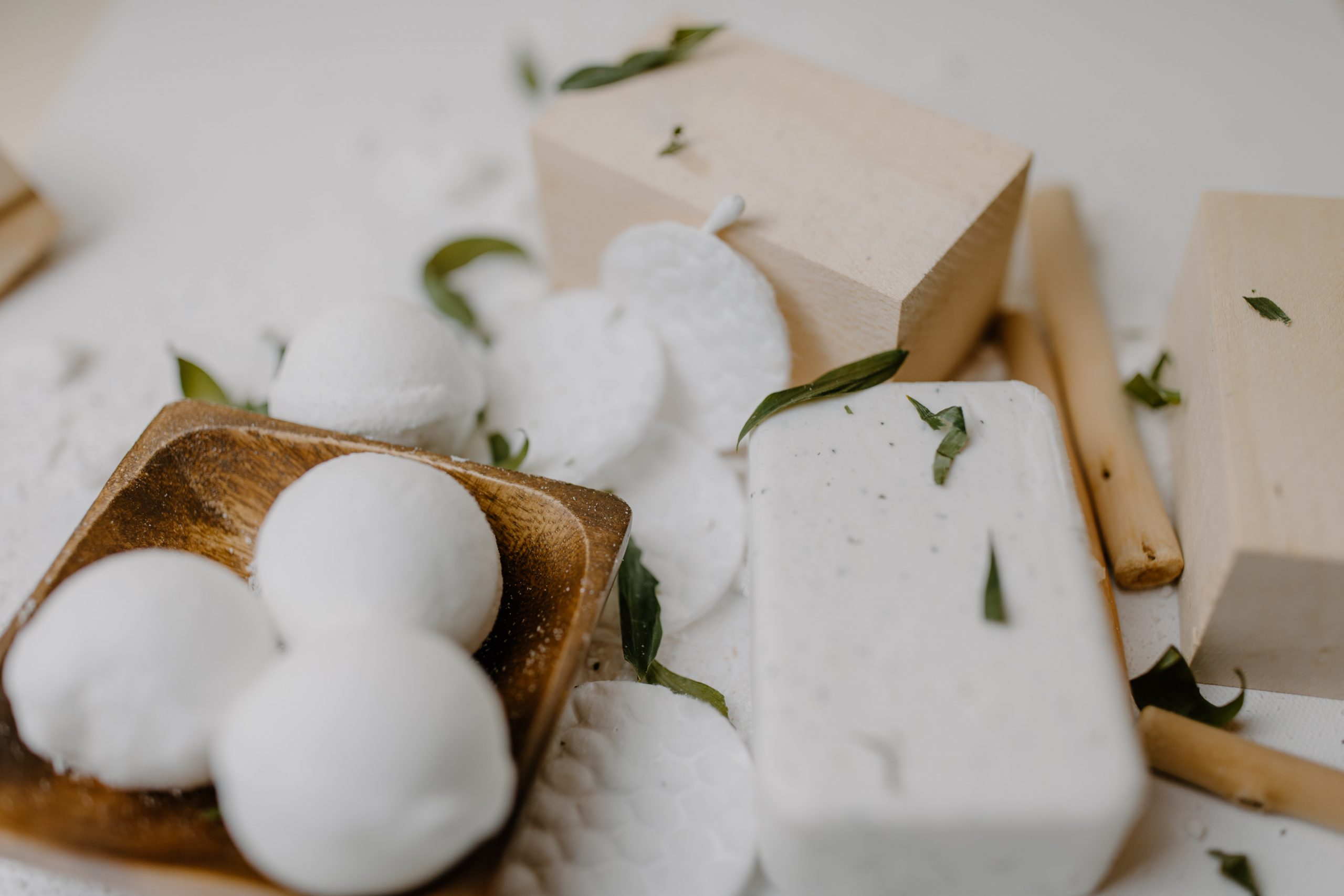Discover the benefits of goat’s milk for the skin. Purifying, soothing, regulating, anti-aging and moisturizing, it has it all!
Goat’s milk, cow’s milk, sheep’s milk, donkey’s milk… Each milk has its benefits! In Slow Cosmetics, we sometimes like to use dairy products to take care of our skin, if they come from animal-friendly farms. Focus on goat’s milk: its properties, its benefits, and its use in cosmetics.
Why a goat’s milk product in cosmetics?
It is a beauty ally highly appreciated in The Goats Field for its unique cosmetic properties. Rich in fatty acids, known for its moisturizing and rebalancing action, this milk is ideal for soothing, purifying, and preserving the skin.
Did you know? It is said that Sissi the Empress regularly relaxed in goat milk products to take care of her skin. We understand better where she got her legendary beauty from.
Whether it’s dry, sensitive, reactive, oily, mature, acne-prone, your skin will love this milk. We reveal here the benefits that we know the most about it in beauty.
What are the benefits of goat’s milk?
The friend of acne-prone skin
Pimples, blackheads, dilated pores… It is ideal for oily problem skin. It is very recommended to fight against imperfections.
Rich in lactic acid, it purifies and regulates excess sebum while respecting the pH of the skin. Its benefits are increased tenfold when combined with essential oils with cleansing properties, such as tea tree essential oil for example.
Plus, its moisturizing and nourishing properties help blemishes heal and fade faster.
Milk that soothes sensitive skin, even babies!
Widely used in Nordic countries to fight against the tightness of the skin due to the cold, goat’s milk provides optimal hydration to dry skin. Easily absorbed, it strengthens the barrier function of the skin and thus protects it from external aggressions.
The fatty acids it contains also make it a very soothing 100% natural ally for sensitive and reactive skin, children, and even baby skin!
Ideal milk for mature skin
Because goat’s milk is suitable for all ages of life, mature skin can also benefit from its cosmetic benefits! Naturally antioxidant and rich in vitamin A, it helps prevent signs of aging such as loss of elasticity, wrinkles, fine lines, dark spots, or lack of radiance.
Indeed, the lactic acid it contains is very effective in eliminating dead skin cells, boosting their regeneration, and densifying skin tissue. Its amino acid content, comparable to breast milk protein, stimulates the skin’s metabolism. Result: a beautiful radiant complexion!
Goat milk for hydrated hair
Just like cow’s milk, it has benefits for the hair. It is particularly suitable for dry and damaged hair and provides it with hydration and shine. Soft, smooth, and supple manes are yours.
Its soothing properties also make it a good ally for sensitive, irritated, or eczema-prone scalps. It works wonders on dandruff-prone scalps.
Used in a soap or shampoo soap, goat’s milk gives a creamy texture and a generous foam to the product.
How to use goat’s milk in care?
In mask, cream, soap, and shampoo
The most common treatment is goat milk soap. Ideal for daily cleansing of the body and face, it will leave your skin very soft. To go even further, you can make a face mask once a week. Nothing’s easier! Just leave the lather of your goat milk lotion on your face for a few minutes, then rinse thoroughly.
You can also turn to a goat’s milk cream to complete your routine and deeply moisturize your skin after showering. For your hair, opt for a shampoo or goat milk bath bomb based on this milk.
Homemade mask recipe with organic whole goat’s milk yogurt
If you are a DIY fan, know that you can make a homemade face mask! This is a very easy recipe that will gently pamper your skin.
To do this, mix organic goat’s milk yogurt with a little apricot kernel oil. It is also possible to modify the recipe and mix whole goat’s milk with a little honey.
Leave the preparation on your face for 5 to 10 minutes, then remove with a damp towel and rinse with clean water. Good-looking effect guaranteed!
Does goat’s milk contain lactose?
Like cow’s milk, goat’s milk contains lactose, but at a lower dose. It contains on average 4.2g2 of lactose per 100ml, which is slightly lower than cow’s milk which contains 4.7g2of lactose per 100ml. However, many people advise against the use of goats, donkeys, sheep, mare, or cow’s milk treatments for people who are lactose intolerant. Before use, turn to a health professional who will be able to guide you on this subject.
Which goat’s milk soap to choose?
If you want to adopt this milk in your slow beauty routine, opt for a soap made from goat’s milk, preferably cold saponified. This type of soap is usually sold in bars, a format that makes it a real zero waste companion and very easy to use! Saponified cold, this soap will be surgeries and therefore very moisturizing for the skin. And contrary to what one might think, it doesn’t smell like a sheepfold.
Where can I find a good goat’s milk soap?
To have the guarantee of natural and artisanal soap, turn to the winning brands of The Goats Field. These are soaps made with love and respect of animals that will be very gentle on your skin.




